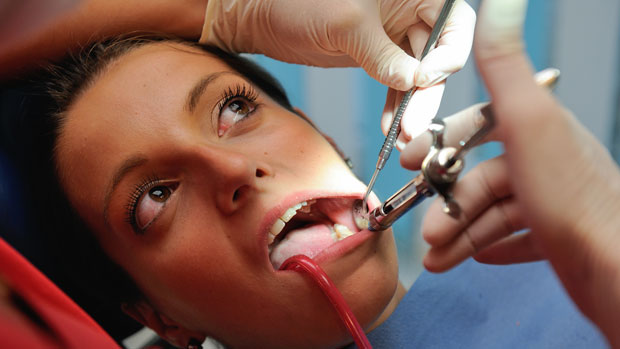Drill-free tooth repairs coming 'in three years'
New technique could replace the drill with electric pulses that help teeth repair themselves

A free daily email with the biggest news stories of the day – and the best features from TheWeek.com
You are now subscribed
Your newsletter sign-up was successful
British researchers are developing a new dental technique that could spell an end for drilling and filling.
The technology, which uses electric currents to help teeth repair themselves, could be in dentists' surgeries within three years.
The King's College London scientists who came up with the process are founding a company to market it, says the BBC, so full details have not been revealed. But the team hopes it will eliminate the need for drills, injections or fillings in some cases.
The Week
Escape your echo chamber. Get the facts behind the news, plus analysis from multiple perspectives.

Sign up for The Week's Free Newsletters
From our morning news briefing to a weekly Good News Newsletter, get the best of The Week delivered directly to your inbox.
From our morning news briefing to a weekly Good News Newsletter, get the best of The Week delivered directly to your inbox.
The new technique involves applying a paste of minerals that encourage a tooth to regenerate itself, and then using an electric current to drive them deep into it.
In 2001, the BBC reported that an American team had developed a "sort of plastic filler" packed with the minerals teeth need to regenerate, with the idea that it could be used to attach braces or temporary fillings. The new technology builds on this concept.
The King's College group says tests on "electrically accelerated and enhanced remineralisation' show that it can strengthen the tooth, reduce areas of decay and encourage healthy regeneration.
"This is early stage," said Professor Nigel Pitts, an investor in the new company and one of the inventors of the technique. "You don't start with the finished product, but we're excited because we think it is groundbreaking.
A free daily email with the biggest news stories of the day – and the best features from TheWeek.com
"We have set up a company to convert it from a demonstration technology into a viable commercial product that we can put into the hands of dentists around the world."
He cautioned that the technique would not tackle large "end stage" cavities. Nor could it physically re-grow an entire tooth.